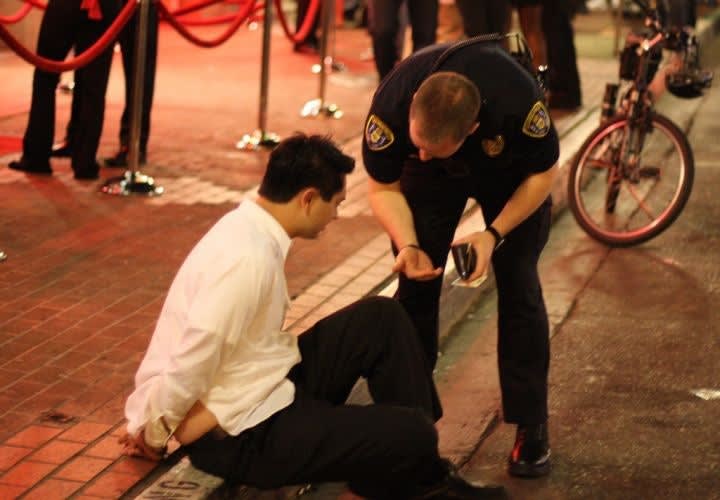On June 1, 2010, the Supreme Court decided an important Miranda case arising from a Michigan murder case. Here are the facts:
Chester Thompkins was arrested and given a standard Miranda warning and gave evidence that he understood his rights. Officers made no effort to obtain an express waiver but began asking questions. For some two hours and 45 minutes, Thompkins was essentially non-responsive, although he occasionally nodded his head or said "I don't know," or "Yes" or "No" to something the officers said. Then, officers asked if he believed in God and would pray to God to forgive him "for killing that boy." Thompkins said he would.
This answer was used at trial to convict Thompkins of murder. His appeals took him to the U.S. Supreme Court, where he made several arguments of Miranda error. By 5-4 decision, the court held that no Miranda error occurred.
First,Thompkins argued that he effectively invoked his right to silence by actually remaining silent. The court majority rejected this argument and ruled that in order for a custodial suspect to invoke either his right to counsel or his right to silence, he must unambiguously communicate his desire to do so. For example, he could have said, "I don't want to talk," or "I want a lawyer." Because he did neither, the court held that he failed to invoke his Miranda rights.
Second, Thompkins argued that because he never gave a waiver, officers could not proceed with interrogation. This argument was also rejected by the court. The court pointed out that one of its previous decisions had held that a Miranda waiver may be either express or implied. A waiver is "express" when the suspect is specifically asked after warnings and acknowledgment of understanding whether he wants to talk about what happened, and expressly says he is willing. A waiver is "implied" when the suspect is warned and acknowledges his understanding of his rights and then answers questions put to him, without first being asked whether he agrees to talk. In this case, the court ruled that Thompkins gave an implied waiver by eventually responding to the officers' questions.
Third, Thompkins argued that his statement was involuntary because officers referred to his religious beliefs to prompt him to incriminate himself. Again citing to one of its previous cases, the court said that there was nothing improper in this tactic, since only "coercion emanating from official sources" could cause a statement to be involuntary.
This significant new decision firmly establishes that once a suspect has received the Miranda warnings and indicates that he understands his rights, officers are not required to ask whether he wishes to waive or invoke but may simply start asking questions about the case. If a statement is ultimately obtained, it will be admissible under Miranda.
(This case and the issues will be examined in greater detail in the "Point of Law" department in a forthcoming issue of POLICE magazine.)
Do you agree with the Court's decision? Vote in our Web Poll.













